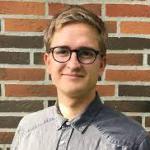Contextual Theology at the Vatican: Really?
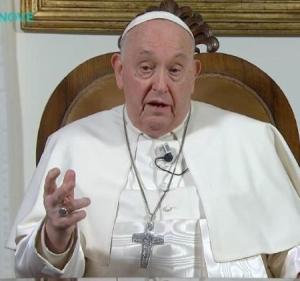
Can we look forward to contextual theology at the Vatican? Pope Francis is asking his theological drivers to change lanes, to switch from “desk theology” to “contextual theology.” Roman Catholic reflection on the Christian faith, says the pontiff, should become “fundamentally contextual theology.” This is one takeaway from Ad Theologiam Promovendam of November 2023.
Recall how the Second Vatican Council (1962-1965) threw open the church windows, the principle then known as aggiornamento. By opening the windows to let the winds of modernity blow through, Vatican II theologians sought to bring the church up to date. Now that the church is up to date, the Holy Father is stirring up another windstorm. Rather than top-down dogma, Pope Francis looks for a gust of bottom-up contextual theology.
Contextual Theology as Transdisciplinary Dialogue with the Wider Culture
The motu proprio titled Ad Theologiam Promovendam, or “to promote theology,” updates the statutes of the Pontifical Academy of Theology (PATH). Still only in Latin and Italian, Jonathan Liedl provides an English translation.
“Theology can only develop in a culture of dialogue and encounter between different traditions and different knowledge, between different Christian confessions and different religions, openly engaging with everyone, believers and nonbelievers.”
I just love this.
The Vatican window is now open very wide.
As a Lutheran public systematic theologian who prays regularly for the success of the Roman Catholic Church in its mission, I’m hoping that the Holy Spirit will blow enrichment through this newly opened window. But, strong winds risk blowing in chaos.
In Berkeley at the Graduate Theological Union (GTU), I work with colleagues ecumenically, multi-religiously, and multi-disciplinarily. I cannot imagine any better context for intellectually honest theological reflection.
Can we add science and religion to contextual theology?
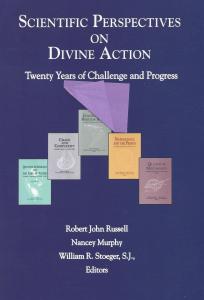
“If the Church is to do more than merely survive, we need a new theological vision,” trumpets Roman Catholic theologian Ilia Delio at Villanova. This new theological vision, she says, includes natural science. ‘To really engage in a vital theology, everything, including God, must be revisited in light of evolution and quantum physics.”
Already in Laudato Sí, Francis declared that “science and religion, with their distinctive approaches to understanding reality, can enter into an intense dialogue fruitful for both.” (Pope 2015, §62).
There is precedent for this trans-disciplinarity. From 1987 to 2008, GTU scholars at the Center for Theology and the Natural Sciences (CTNS) crawled through the windows of the Vatican Observatory (VO) to study God’s action in the natural world (R. J. Russell 2008). We feel we advanced the breathing of theology by inhaling scientific insights into the doctrines of creation and redemption. Our sponsor, Pope John Paul II, enthusiastically embraced our transdisciplinary method.
“Science can purify religion from error and superstition; religion can purify science from idolatry and false absolutes. Each can draw the other into a wider world, a world in which both can flourish.” (Pope, 1988. M13)
Contexual Theology vs Public Systematic Theology
I’m still in the middle of a Patheos series on public systematic theology with special attention to a Copenhagen professor, Michael Agerbo Morch. In these postings, I’m contrasting systematic theology, on the one hand, with contextual or constructive theology, on the other hand. Systematic theology relies on the principle of coherence to organize the doctrinal loci (Morch 2023)(Peters 2015). Constructive theology and perhaps contextual theology sacrifice internal doctrinal coherence in order to pay full respect to the insights of discreet socio-cultural contexts. GTU theologian Anh Tran is not fighting against desk theology as much as he is against Eurocentric theology. Let me repeat what Tran says about contextual
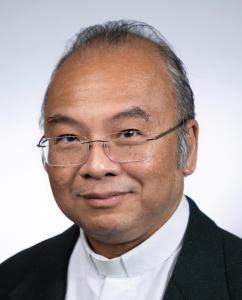
theology.
“The Christ that many Majority World Christians received from the missionaries was too Eurocentric, and became less relevant in their new indigenization and social movements. New theological voices began to be heard around the globe, from Latin America to Africa and Asia. In Latin America, liberation theologians tried to understand Jesus from the reality of social economic inequality: Christ is a friend and a liberator of the poor. African theologians concentrated on viewing Christ from a cultural and familial lens: Christ is the life-giver, mediator, and leader par excellence. Working within diverse cultural and religious backgrounds, Asian theologians tried to make sense of the uniqueness of Christ in relationship to the other world religious figures and founders (e.g., Buddha, Krishna, Confucius, or Muhammad): Christ amid other Asian ways, truths, and lights. In these conversations, even the non-Christians joined in: there are visual and textual portraits of Jesus from Buddhist, Hindu, Muslim and Jewish perspectives.” (Tran, 2017).
Is this what the pontiff in the Vatican is asking for by way of contextual theology? Really?
Conclusion
It is always a good day when the Vatican opens its windows so that the winds of our tumultuous world can blow through. But I fear that the gusts may disturb what’s already sitting on Vatican desks. This is the risk of contextual theology.
The good news is that Pope Francis’ invitation for trans-disciplinarity and new scholarship has healthy precedents in both Vatican II and the CTNS/VO project on divine action. Let’s expect good things to come of this.
▓
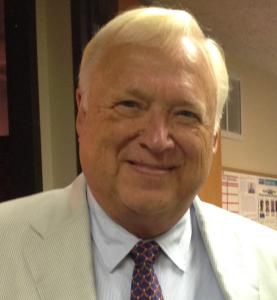
Ted Peters (Ph.D., University of Chicago) is a public theologian directing traffic at the intersection of science, religion, and ethics. Peters is an emeritus professor at the Graduate Theological Union, where he co-edits the journal, Theology and Science, on behalf of the Center for Theology and the Natural Sciences, in Berkeley, California, USA. He recently co-edited Astrobiology: Science, Ethics, and Public Policy (Scrivener 2021) as well as Astrotheology: Science and Theology Meet Extraterrestrial Intelligence (Cascade 2018). He also co-edited Religious Transhumanism and Its Critics (Lexington 2022) and The CRISPR Revolution in Science, Ethics, and Religion (Praeger 2023). Peters is author of Playing God: Genetic Determinism and Human Freedom (Routledge, 2nd ed, 2002) and The Stem Cell Debate (Fortress 2007). See his blogsite [https://www.patheos.com/blogs/publictheology/] and his website [TedsTimelyTake.com].
▓
References
Morch, Michael. 2023. Systematic Theology as a Rationally Justified Discourse about God. Gottingen: Vanenhoeck & Ruprecht.
Peters, Ted. 2015. God–The World’s Future: Systematic Theology for a New Era. 3rd. Minneapolis MN: Fortress Press.
Pope, Francis. 2015. Laudato Si. http://www.vatican.va/content/francesco/en/encyclicals/documents/papa-francesco_20150524_enciclica-laudato-si.html, Vatican: Vatican City State.
Pope, John Paul II. 1988. “Letter to the Reverend George V. Coyne, S.J.” In Physics, Philosophy, and Theology, by William R Stoeger, and George Coyne, eds Robert John Russell. Vatican City State: Vatican Observatory.
Russell, Robert John, Nancey Murphy, and William Stoeger, eds. 2008. Scientific Perspectives on Divine Action: Twenty Years of Challenge and Progress. Vatican City: Vatican Observatory Foundation ISBN 978-88-209-7961-4 / and University of Notre Dame Press.
Russell, Robert John, William R Stoeger, and George V Coyne, eds. 1988. Physics, Philosophy, and Theology. Vatican City State: Vatican Observatory.
Tran, Anh. 2017. “Jesus Beyond the West: Christological Conversations in the Age of World Christianity.” In World Christianity: Perspectives and Insights. Essays in Honor of Peter C. PHan, by eds Jonathan Tan and Anh Tran. Maryknoll NY: Orbis.




